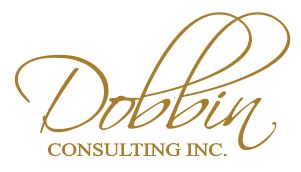
The growing need for soft-skills in the battle for re-development
As expectations of community and public engagement continues to expand, the need for meaningful and well-executed public engagement and public-relations in the development industry is growing. Beyond the standard public open-house, increasing complexity, digital presence, and communication expectations continue to be a challenge for architects and land developers with a mind for design, profitability, and a predictable application timeline.
Most prominent in re-development of established areas, public engagement often requires multi-front engagement with community associations, neighbours, municipalities, councilors and the public at large. Consistent public messaging, open communication, and intentional engagement goes a long way towards generating good-will and meaningful discussions throughout the planning process.
Poor engagement can dramatically impact project bottom-lines; increasing carrying and engagement costs, threatening conditional closing dates, and complicating multi-seller assemblies. “Getting it wrong” can delay applications and result in frosty reception by the community for all future developer projects in the area.
Good engagement includes management and planning for elements of public, government, and private communication and generates presentable and defendable elements of responsive design. Documentation and issue acknowledgement, coupled with aligned responses result in faster application times, improved approval rates and a reduction to the risk of appeal.
“The Rules” listed below contain best practices for the approach to design and conduct of good engagement for your project.
The Rules – Consistent and Meaningful Engagement Considerations
- Create safe, open and inviting opportunities for stakeholders to voice their concerns and frustrations about re-development within the public realm and in private interfaces that can be far reaching and emotionally wrought. For example, although not a protected right for private property, sunlight impacts can be especially upsetting for nearby residents who may lose sunlight in yards they have enjoyed for years.
- Generate informative pieces and events intended to address the level of industry understanding a citizen may or not have, from an educative standpoint, without expectation or condescension in the delivery. Developers often under- or over-estimate the knowledge a community association or neighbour group may have and miss the mark with communication pieces that overwhelm or minimalize the experience for stakeholders. In these situations, tact, ‘people-skills’, and care in story-telling accompanied by clear graphics can make or break the engagement.
- Distill concerns down to aligned and actionable changes a developer can make to building design, location on the property, public interfaces, and public realm.
- Document and communicate concerns, and directly-related answers, with careful consideration of the messaging, and ability for a single development to address a wider concern such as laneway interfaces and traffic impacts.
- Provide transparent and consistent reporting of engagement and results to the governing body and all stakeholders.
- Consider timing and reporting on engagement pieces. Engage early, consistently, and keep an open-door online presence for stakeholders. Report quickly and clearly, with actions taken and changes to design, to communicate willingness and transparency. Keep all stakeholders ‘in the loop’ of communication to generate a collaborative approach, but consider both the audience and the tone of correspondence carefully.
In Summary
With these considerations in mind, it is apparent that good engagement has become an important component of any application process in the development industry. Completing engagement well continues to challenge developers and architects and has led to the need for consulting specialists that understand the building industry, government requirements, and stakeholder engagement expectations. This niche specialty requires a unique breed of soft-skills and industry knowledge to provide support and guidance encompassing public relations, branding, stakeholder management and expectations for developer-lead engagement.
As the demand for public and private engagement continues to grow, front-line application work will increasingly necessitate the need for developers to improve their processes for stakeholder engagement and management of public relations if they are to succeed in future developments.
Dobbin Consulting Inc. is a boutique engagement and application management consulting firm operating in Calgary, Alberta with a focus on complex public engagement, heritage loss negotiations and land redevelopment in established communities.
